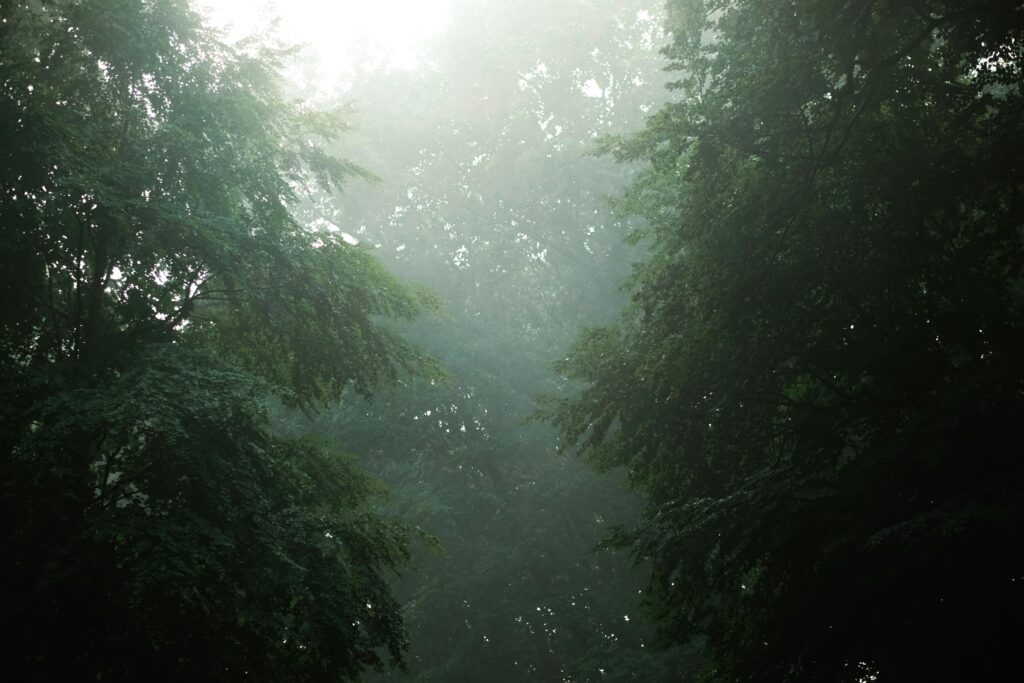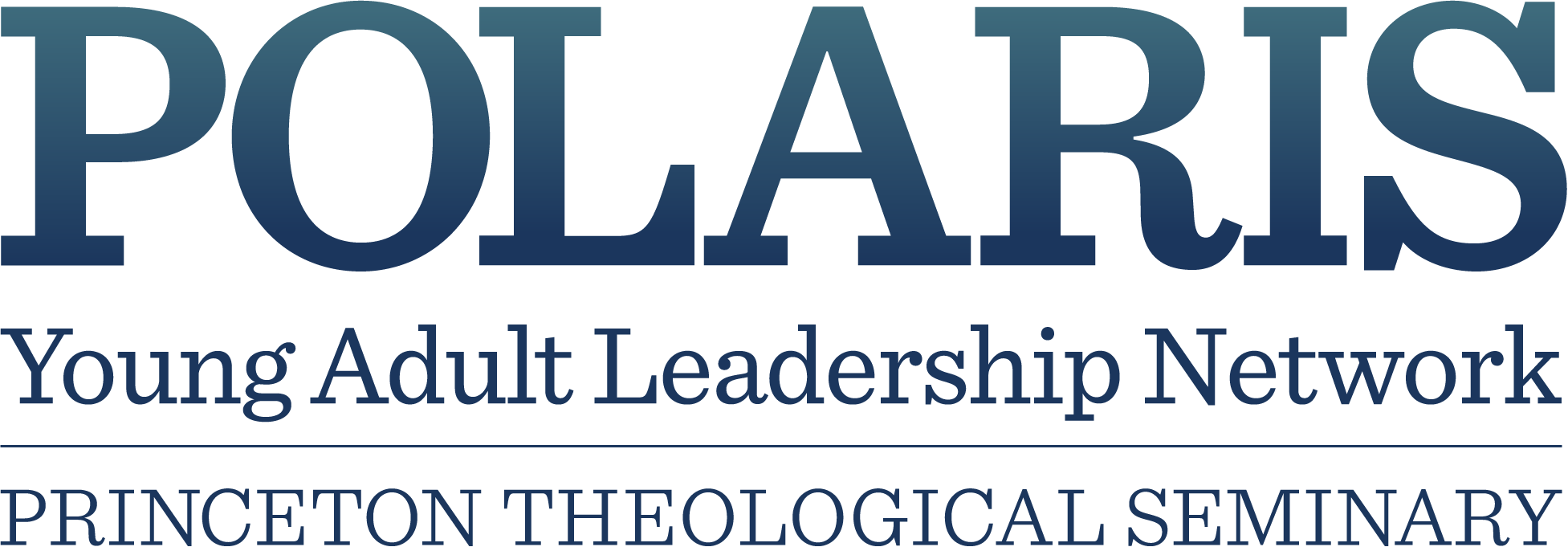
Listen to this post.
By David Katibah
When I step into a forest, I often think of it like a hall of saints. I touch the trees as I walk through, imagining each one a soul rooted deep in the dirt of faith. They stand proud in perseverance through the years, stretching to soak in more of the Light, breathe out more of the spirit, offer more refuge to the world of moving things below. Looking out across a familiar forest on a crisp autumn day, I see all the people who have shaped my spiritual path: youth leaders and college disciples who tended my seedling of faith and planted it within a Southern tradition of confident counter culturalism, ebullient evangelism, and scriptural certainty; writers like James KA Smith, Thurman, Wright, Nouwen, Morrison, Brueggemann, Buechner, and Robinson who taught me to taste of my own belovedness, resist the liturgies and forces of injustice that conscript us, and tell new stories of love for all creation; and my two grandfathers, whose pastoral legacies are twin torches that light my steps.
As I walk, I think of all the paths I have traced through forests far from this one. The creek behind my cul-de-sac, which was my refuge when the chaos in my house crescendoed to drown out the tenderness of God’s voice. The silent trail where I encountered the arresting depth of God’s love for all, including myself, during my year as a missionary in China. The tidy path in West Jerusalem, which cried a lament of oppression yet rooted me in the promise of God’s restoration as I led peacemaking pilgrimages across Israel/Palestine. And the Grecian olive grove that sheltered me as I wept at the sight of hundreds of thousands of lifejackets left behind by Syrian refugees forced into exile from the heritage-home our families share in common. All these paths ultimately traced me, leading to an alcove in my soul where I found an impenetrable longing: the transformation of violence into flourishing.
“All these paths ultimately traced me, leading to an alcove in my soul where I found an impenetrable longing: the transformation of violence into flourishing. ”
On a crisp October day, I sit in Upton Hill Park, a hidden refuge which used to welcome me daily in Lent years ago. I notice that it holds all the same giants, yet its brush is new and foreign to this version of me. An infant undergrowth surrounds me, and in it I see my own spiritual growth: the risen leaf layer of mystery I now hold in former places of knowing; the emergent saplings whispering the pregnant truth that our liberation is only possible when it includes all, oppressed and oppressor; the dappled light coloring everything like the calling on my life. I have come to name that calling as peacemaking, re-weaving life back together again in mutual flourishing, announcing the promise and invitation of the Kingdom of God on earth as it is in heaven.
Walking through the forest, I reflect on my role in this great, living drama. I am a product of all the forces that came before me, generations of saints and trees that make the very dirt upon which I stand. But I am also a creature that will leave a living legacy, too. What might that legacy be—seeds scattered over a lifetime of summers, soaking in God’s abundant light?
“Walking through the forest, I reflect on my role in this great, living drama. I am a product of all the forces that came before me, generations of saints and trees that make the very dirt upon which I stand.“
I hope that legacy calls the church to the fullest expression of itself:, the living breath, beating heart, and healing hands of Christ. My heart has been broken too many times by witnessing our own complacency and complicity in violence the world over, not only in my ancestral land in the Middle East but also in the United States. I have seen this truth first-hand during my years as the Director of Communications and Christian Engagement at the Telos Group, a peacebuilding nonprofit transforming America’s relationship to Israel/Palestine and our own history of racial injustice. We have lost sight of the vision of the Kingdom which Christ came declaring, which Christ rose again to inaugurate, which Christ is inviting us to step into every day. We have chosen instead to believe the vision given to us by the stories and forces of Rome, which have disemboweled us into fragments for use in the factories of empire.
I long to awaken the church back again into the joy of the Kingdom, a forest exploding with growth rooted in the belovedness of all humankind. We have received a towering heritage, a radical invitation, life-upending good news that everything is not what we thought, that life—not death—wins in the end, and that this life has a name. We have been called to participate in the Great Inversion of the world, the transformation of hierarchy into ever-expanding equality, to sing a new song of healing and belonging for not only our very souls—bodies and spirits—but for the whole cosmos! These are the seeds I hope to drop in the forest of humanity.
“We have been called to participate in the Great Inversion of the world, the transformation of hierarchy into ever-expanding equality, to sing a new song of healing and belonging for not only our very souls—bodies and spirits—but for the whole cosmos!”
I sit in that park and breathe in the leafy cocktail of air—a language of the trees and dialect of the lungs—as if it holds messages from these generations of saints. I hold that air deep, a fuel for speech, knowing I carry it with me when I leave—the weight of an entire forest in each breath, and in each step just beyond the forest’s edge.
___________________________________________________________________
 David Katibah
David Katibah
As an American of Syrian descent, David is passionate about conflict transformation in the Middle East and Christians participating in peacemaking around the globe. He holds dual BAs in Economics and Political Science from the University North Carolina at Chapel Hill, and has lived and worked in East Asia, North Africa, and the Middle East. Outside of his work at the Telos Group, David writes about peace, poetry, and imagination on his Substack, and serves on the board of Peace Catalyst International.

